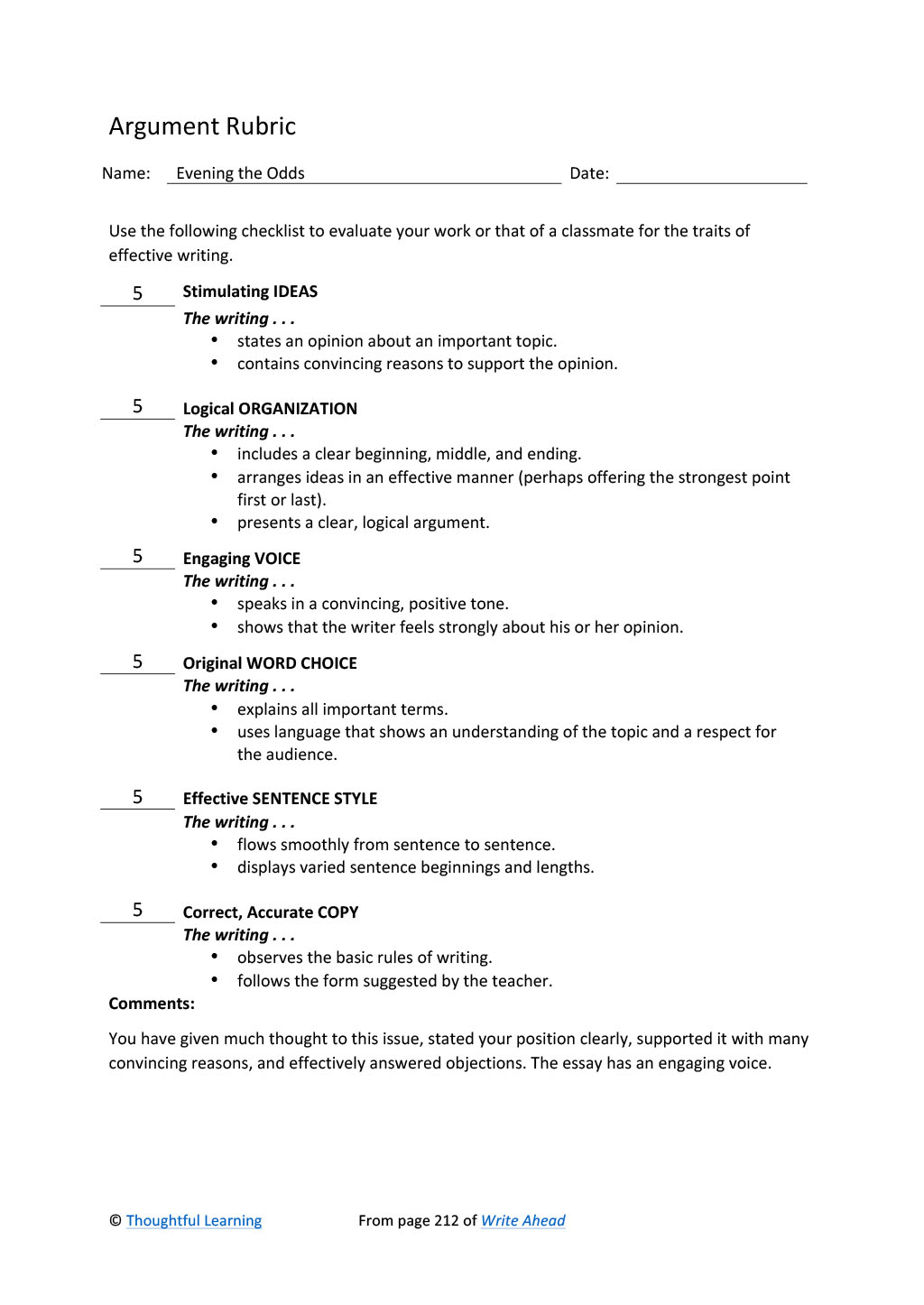Student Model
Evening the Odds
A new breed of hunter dwells among North America's hidden waterways. Armed with an $80.00 rod and reel, $90.00 hip waders, and a wide array of lures ranging from glowing gadgets to old-fashioned worms, today's fishing enthusiast has an arsenal well beyond the bent nail and old twine that Huck Finn used for jigging. Today, however, people who fish carry one piece of equipment that is outdated: the barbed hook, which is still added to almost every lure produced commercially. This mechanism continues to plague the sport of fishing by damaging young fish stocks. Barbed hooks should be banned from lure fishing to protect fish that are not yet ready for anglers to keep.
A smooth (barbless) fishing hook is much easier to remove from a fish's mouth than a barbed hook. A smooth hook comes out cleanly, leaving only a small puncture, and giving anglers the opportunity to release undamaged fish. A properly set barbed hook, on the other hand, often inflicts serious injury to the jaw of the fish. While this is not a problem for the larger keepers, it does have serious consequences for smaller fish that should be released back into the waterway. Many of these small fish are kept because the anglers know that releasing them would be inhumane, while others are released with portions of their jaws missing, unable to feed properly. By improving the angler's chances of safely releasing unwanted fish, barbless hooks help to preserve our limited fish stocks.
Supporters of barbed fishing hooks say that banning the hooks would decrease the number of fish they are able to land. They claim that enjoyment of the sport would be limited by the increased difficulty of keeping fish on the line. They are at least partially correct; playing a fish is difficult without a barb. However, this does not have to limit the enjoyment of the sport.
When sportsmen stop to reflect on why they find fishing so enjoyable, most realize that what they love is the feel of a fish on the end of the line, not necessarily the weight of the fillets in their coolers. Fishing has undergone a slow evolution during the last century. While fishing used to be a way of putting food on the table, today's motivation may be for the relaxation that it provides. The barbed hook was invented to increase the quantity of fish a person could land in order to help feed a family. For most fishers today, this need no longer exists, and so barbed hooks are no longer necessary.
According to some anglers who do use smooth hooks, their lures perform better than barbed lures as long as they maintain a constant tension on the line. Smooth hooks can bite deeper than barbed hooks, actually providing a stronger hold on the fish. These anglers testify that switching from barbed hooks has not noticeably reduced the number of fish that they are able to land. In their experience, enjoyment of the sport is actually heightened by adding another challenge to playing the fish (maintaining line tension).
Because most people do not need to fish for food, barbed hooks are no longer needed. Just as in any other sport, enjoyment comes from being able to achieve a goal despite considerable difficulty. If anglers chose their equipment solely on the quantity of fish they were able to land, everyone would fish with dragnets. While most people agree that nets take the sport out of fishing, they must realize that barbed hooks do the same thing. Fishing with smooth hooks is a way of caring for and conserving fish stocks while still maintaining the enjoyment of sportfishing for the angler.

Rubric


Evening the Odds by Thoughtful Learning is licensed under a Creative Commons Attribution-NonCommercial-ShareAlike 4.0 International License.
Based on a work at k12.thoughtfullearning.com/assessmentmodels/evening-odds.